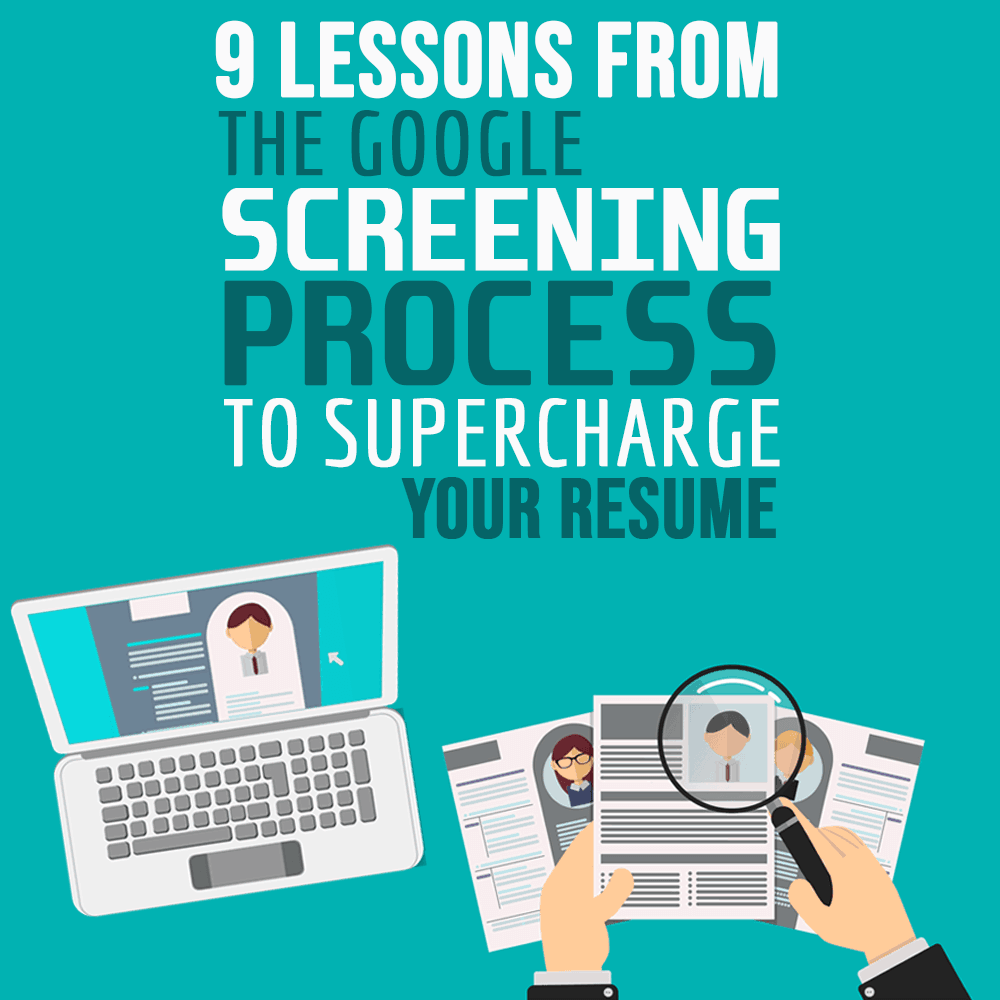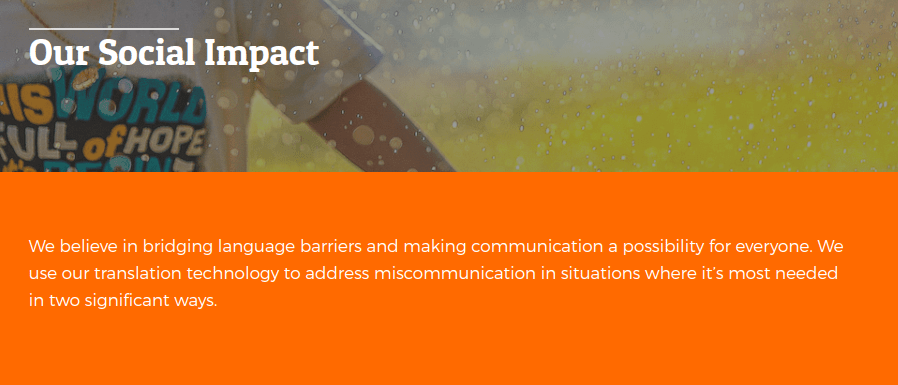 Most corporate job openings receive about 250 applications. Google receives over 2 million per year. With so many resumes to handle and a genuine intent to hire only the best software engineers, Google knows a lot about the screening process.
Most corporate job openings receive about 250 applications. Google receives over 2 million per year. With so many resumes to handle and a genuine intent to hire only the best software engineers, Google knows a lot about the screening process.
Even though you may not be aiming for a job at Google, learning from Google will help you get your next tech job.
From applicant tracking system (ATS) optimization and soft skills to more advanced knowledge, these tips will help you supercharge your resume.
Optimize for ATS
It’s not entirely clear what role ATS plays in Google’s hiring process. The company offers an ATS as a part of G Suite, but it’s scheduled to be closed in 2020. Despite closing their product, this shows Google does value ATS in general. Some even speculate that they’re keeping their ATS for in-company use.
On the other hand, most Google employees interviewed for major publications either do not mention anything except the interview process or say that Google recruiters have to look through all the interviews manually. Considering the fact that you have to sign a non-disclosure agreement (NDA) with Google after an interview even if you don’t get hired, it’s no surprise that there’s little information about the hiring process.
Even if Google isn’t using ATS to review applications, many tech companies do. Here’s what you need to do to optimize your resume for ATS:
- Keep the resume well-structured.
- Name each section in a conventional way.
- Include keywords likely to interest your employer.
- Make sure the document you hand in can be parsed.
Follow this simple checklist, and you’ll be more likely to get through to human resources (HR) officers. Then, you’ll have to think about making your bot-perfect portfolio good for humans, too.
Improve Readability
If the company you’re applying to uses an ATS, it may be able to sort all your information into a neat and easy-to-browse format. If not, it may be reviewed manually by the recruiting officers.
The last thing you want your resume to be is an essay. On average, a Google HR person won’t take more than six seconds to judge a resume. If the company you’re applying to is big, the odds are you won’t have more time than that to impress the reviewers.
This is how you make your resume readable to humans:
- Pick a clear and conventional font.
- Pick a conventional structure.
- Put the name and contact information in the top left corner.
- Write the name of each resume category in a visible font.
- Use bullet points.
- Write in short form.
These writing tips are basic, but it’s amazing how many engineers forgo writing and bet on their technical knowledge alone. Others make the polar opposite mistake by trying to show off their expertise too much.
Avoid Buzzwords
The reviewers want to see the proof that you’re a candidate worthy of joining the company. They want to see skill and competence. If you mention that you’re a “team player” or that you’re “self-motivated,” it only tells them you’re proficient at corporate speak.
Scott Bacon, a former Google Recruiter, says that seeing words like “synergy” or “dynamic” in a resume is one of the biggest deal-breakers.
The companies may be using this kind of language on their websites, but it’s not a good fit for a resume. The employees that do the screening know full well these words are empty.
Follow this rule of thumb: If you can’t explain a word you’re about to use in one sentence, don’t use it. Referring to your hard skills is pretty straightforward. Things like proficiency in C++ and Java are self-explanatory, as is basic knowledge of Agile.
It gets fuzzier when it comes to soft skills and describing your professional experience. What exactly is “disruptive innovation,” and what do you mean when you say you’re “proactive?” For many people, it’s just a fancy way of saying “I do things.”
Find words like these, and replace them with cold hard evidence of being able to do whatever it is you do.
Show, Don’t Tell
When you talk about your work experience on your resume, it’s important to remember what goals you are pursuing with it. You’re not writing about your work experience to let the recruitment officers know about your previous job responsibilities. Odds are, they know what a software engineer does.

Instead of telling them, show them. Talk about your achievements in the workplace that show how good you are instead of using labels that are so overused they mean nothing.
You don’t need to tell a huge story, though. You can just use the formula Google’s Laszlo Bock came up with: I improved X by Y% by doing Z.
For instance, I decreased customer churn of a client app by 125% by improving latency and fixing app-breaking bugs. Or, I opened a free virtual private network app to a broader audience by implementing a more user-friendly user interface.
You don’t have to be a standalone software engineer to brag about results; mentioning group projects is okay, as well.
Write about responsibilities you had that are out of the ordinary, as well as your accomplishments and highlights of the job. Combined with a readable form, this will make your resume stand out.
Make sure you don’t go on for too long, since HR won’t have time to go through essays. Keep it brief, and you’ll stand more chances of being noticed.
Include Soft Skills
Your ability to iterate and solve problems creatively is extremely important for the company. However, software engineers almost never work on their own. Even Google’s criteria for the perfect employee include communication and teamwork.
This is why your resume will benefit from mentioning soft skills alongside your tech prowess.
Now, the question is, how do you talk about your soft skills without using too many buzzwords? After all, most companies require you to have “communication skills” and be a “team player.”
Don’t just regurgitate these words back to them. Remember the principle mentioned above, and show instead of tell. Show that you understand what soft skills really are and that you have them.
Including a phrase like “I’m okay with objective criticism” or “I will advise a junior developer if they need advice” is so much stronger than saying you’re good at communication.
You must have a story that shows your soft skills, too. Think of the human-related stuff you’ve done for your previous employers—helping with onboarding, solving conflicts, discussing ideas in a non-pushy manner. Mention some of these in the resume, and it will look great.
Manage Online Presence
Google’s own ATS Google Hire allows users to check every trace of the applicant online starting from LinkedIn and GitHub to the U.S. Patent Database. Odds are, major tech companies don’t spare any resources when it comes to this stage of screening.
Unfortunately, this means you can’t post whatever you want—you need to keep your main social media profiles corporate-friendly. Recruiters may think an edgy joke you posted on your Facebook page a year ago marks you as an undesirable candidate.
You should also work on improving your authority online. Ask your coworkers to approve your skills on LinkedIn and make sure you have a couple of solo projects you’re proud of on GitHub.
Adhere to Company Values
One of the core requirements Google has for its potential candidates is the so-called “Googliness.” The company defines it as the ability to work in teams and push yourself outside of the comfort zone.
While the company you’ll be applying to might not be Google, they probably have a set of values they believe are crucial for their team.
Sure, for the most part, it’s just fancy corporate-speak that boils down to “our employees have to work together and be able to learn fast.” But if the company is taking that formula seriously, so should you.
If you find that sort of messaging all over their website, it’s better to add some of the features they’re talking about to your resume. Spend a couple of minutes investigating what the company’s values are. Go to its website and take a look at the “About Us” page. If the website has an “Our Mission”-type page, check that out, too.
This company, for instance, dedicated a whole page to the social impact they’re aiming for. Mention that you care about their cause, and you may have an advantage.
Never Give Out Sensitive Information
Google is very strict about keeping secret information secret. Many other tech companies also expect new employees to follow the coder’s code of conduct.
If your resume mentions some information that should be under an NDA, you’re not bragging about a great project you did. You’re showing them you don’t care about NDAs and will talk about the company’s secrets if it fits your interests.
Most companies will disregard your resume immediately if they find something like that.
Don’t Be Overly Specific
This one is a bit hard to tackle. You know you should tailor the resume for the specific role you’re applying to. However, if you do this too well, you could sabotage your chances of getting into the company in another role.
Google’s recruiters are constantly seeking talent, so even if a resume is not a good fit for the position to which you’re applying, they’ll send it down the line to other recruiters. Many big companies who need talent en masse adopt this attitude. So, your quality assurance resume may be rejected, but the company will offer you a beginner DevOps position if they think you’re a good fit.
Make your resume focused on the role you’re applying to, but include skills that are somewhat relevant to what the company does. Mentioning the fact that you were a Boy Scout will probably not help you, but adding Java skills to your C++ developer portfolio might.
It’s About Creativity and Knowledge
Whatever your opinion about them, Google is one of the most sought-after employers. They’re also probably one of the best companies when it comes to screening applicants.
Take these nine tips from Google and use that knowledge to get past the screening process to the interviews.
When you get there, remember another Google lesson: The company has abandoned their practice of asking brainteasers during interviews. They discovered that they don’t predict performance at all.
Instead, you’ll be asked to solve a problem in real-time and write some code. So, when you schedule a 45-minute interview, be ready to show creativity and knowledge in that time span.

